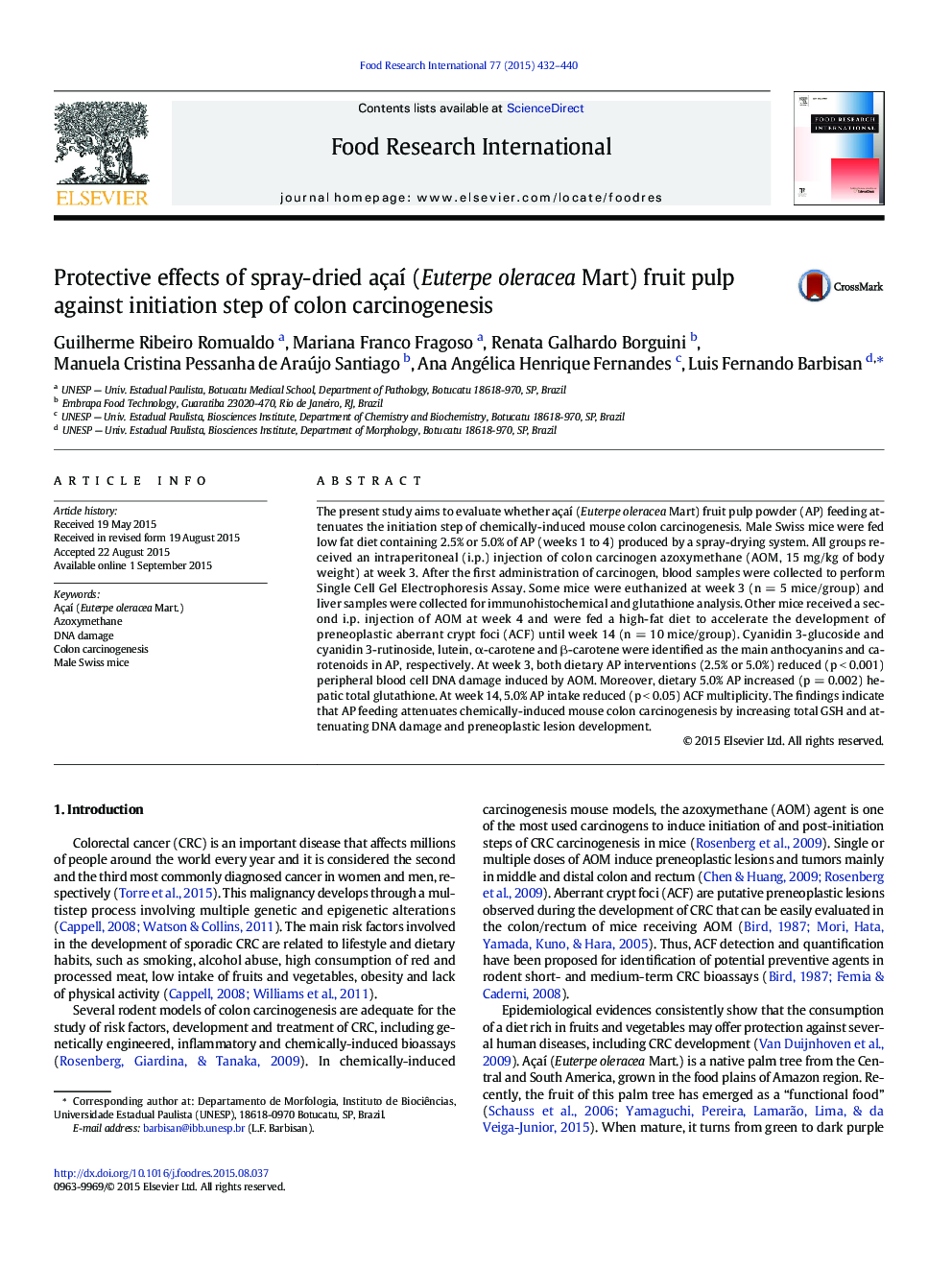| Article ID | Journal | Published Year | Pages | File Type |
|---|---|---|---|---|
| 4561362 | Food Research International | 2015 | 9 Pages |
•Protective effects of açaí fruit pulp (AP) on colon carcinogenesis were evaluated.•AP feeding reduced carcinogen-induced genotoxicity in peripheral blood cells.•AP feeding increased hepatic glutathione levels.•AP decreased colonic preneoplastic lesion development induced by carcinogen.•The findings indicate that AP attenuates initiation phase of colon carcinogenesis.
The present study aims to evaluate whether açaí (Euterpe oleracea Mart) fruit pulp powder (AP) feeding attenuates the initiation step of chemically-induced mouse colon carcinogenesis. Male Swiss mice were fed low fat diet containing 2.5% or 5.0% of AP (weeks 1 to 4) produced by a spray-drying system. All groups received an intraperitoneal (i.p.) injection of colon carcinogen azoxymethane (AOM, 15 mg/kg of body weight) at week 3. After the first administration of carcinogen, blood samples were collected to perform Single Cell Gel Electrophoresis Assay. Some mice were euthanized at week 3 (n = 5 mice/group) and liver samples were collected for immunohistochemical and glutathione analysis. Other mice received a second i.p. injection of AOM at week 4 and were fed a high-fat diet to accelerate the development of preneoplastic aberrant crypt foci (ACF) until week 14 (n = 10 mice/group). Cyanidin 3-glucoside and cyanidin 3-rutinoside, lutein, α-carotene and β-carotene were identified as the main anthocyanins and carotenoids in AP, respectively. At week 3, both dietary AP interventions (2.5% or 5.0%) reduced (p < 0.001) peripheral blood cell DNA damage induced by AOM. Moreover, dietary 5.0% AP increased (p = 0.002) hepatic total glutathione. At week 14, 5.0% AP intake reduced (p < 0.05) ACF multiplicity. The findings indicate that AP feeding attenuates chemically-induced mouse colon carcinogenesis by increasing total GSH and attenuating DNA damage and preneoplastic lesion development.
